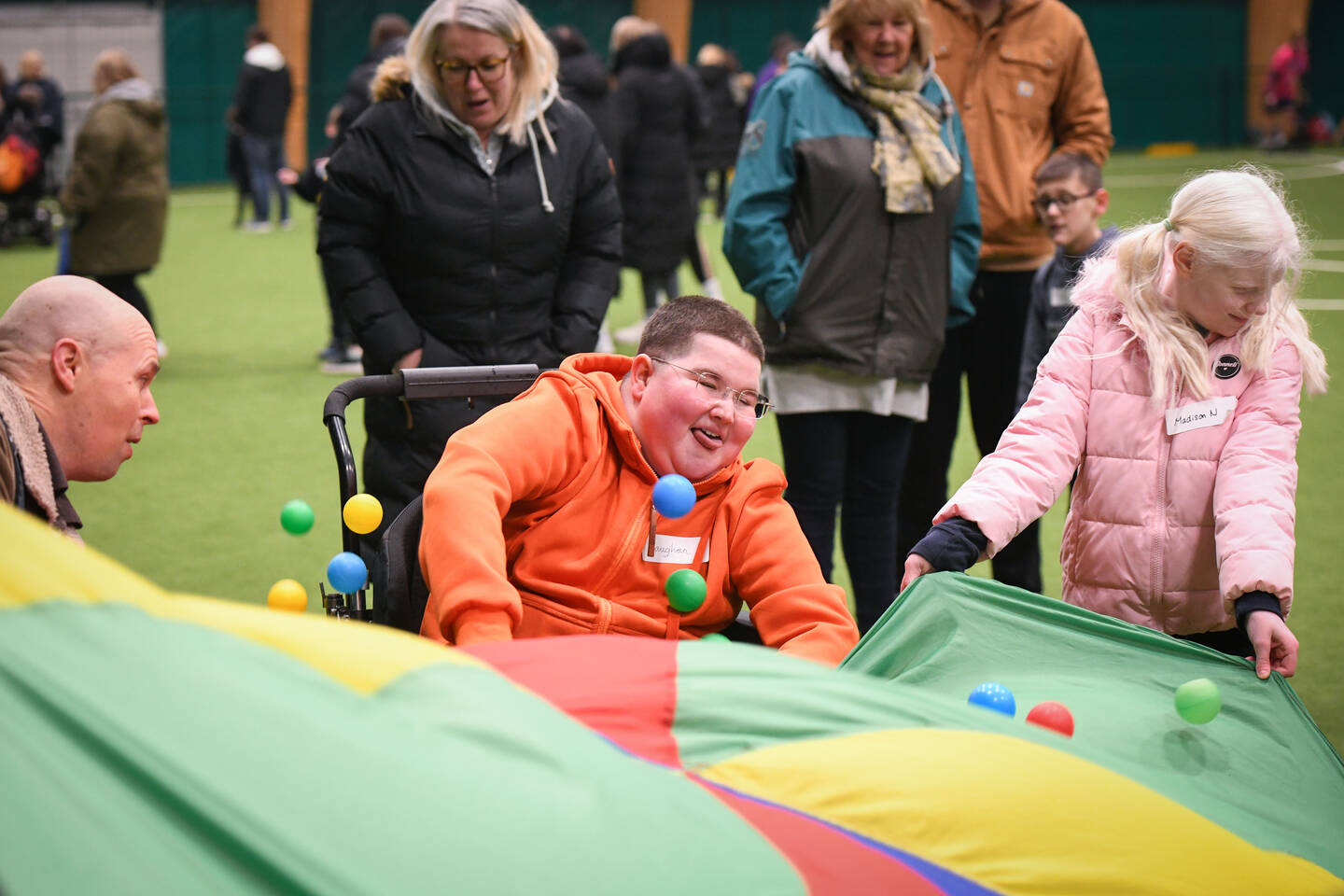Only one in four disabled children can always join in school sports
A new research report, ‘Play, Move, Belong: Active Futures for Young Disabled People’, reveals that young disabled people continue to face significant inequalities in sport and physical activity. It found that only 26% of young disabled people say they can take part in sport and activity at school all the time, compared to 38% of non-disabled young people. This is despite schools being the most common place for them to be active.

During a typical school week four in ten (43%) young disabled people are classified as ‘less active’, compared to three in ten (32%) of their non-disabled peers. Only 3% meet the Chief Medical Officers’ recommended 60 minutes of daily activity.
Released on World Children’s Day, the report highlights a strong desire from disabled children and young people to be more active, when the right opportunities and support are in place.
Latest national data shows that 12% of children in the UK are considered disabled under the Equality Act 2010, up from 7% a decade ago. Yet despite progress in policy and awareness, disabled children and young people remain less likely to be active than their non-disabled friends.
An infographic summarising the key findings is available to download.
They include:
- Despite challenges, eight in ten young disabled people say they like or love being active (85%), driven by a desire to stay healthy, have fun, and build confidence.
- Young disabled and non-disabled people are equally as likely to say they want to be more active (43%), and parents share this ambition. More than half (55%) of parents of disabled children wish their child could take part in more activity.
The study is supported by a consortium of partners. These include Activity Alliance, Sport England, Youth Sport Trust, Access Sport, ParalympicsGB and Loughborough University. It explores the lived experiences of young disabled and non-disabled people, along with their parents and caregivers.
Adam Blaze, Chief Executive, Activity Alliance, said:
"Being active is one of the most effective ways to improve health and wellbeing, and that’s just as true for young disabled people as it is for anyone else.
"Positive early experiences of being active are crucial. They support young people to build the motivation, confidence and competence that form the foundations for lifelong participation. Young disabled people must have the same access to inclusive opportunities in schools and community settings as their non-disabled friends do.
"This report highlights the barriers faced, but also the overwhelming appetite that young disabled people have to be active. We all have a responsibility to ensure they feel they belong in sports and activities."
The research highlights that attitudes, confidence, and access all play key roles in limiting participation. As children get older, the activity gap widens, particularly for disabled girls and those from lower socioeconomic backgrounds.
- Disabled girls are three times more likely to lack confidence when being active (24% vs 8%).
- Only half of young disabled people find sport or activity easy (compared to 76% of non-disabled peers).
- Many young people face barriers such as lack of confidence (43%), not feeling comfortable (31%), or feeling they won’t belong (24%).
Ali Oliver MBE, CEO of Youth Sport Trust said:
"It’s incredibly concerning only one in four young disabled people feel they can always join in PE or school sports. At the Youth Sport Trust, we are resolute in our belief every child should be able to access the life-changing benefits of play and sport. As we move into a new era for PE and school sport, the insights from Activity Alliance are alarming and must reaffirm our collective commitment to embed equal play and equal access.
"Through programmes like Inclusion 2028, we are working to change that statistic and ensure that all children, regardless of ability, can enjoy and fully participate in physical activity."
Young people prefer inclusive, fun, and outdoor activities, often wanting to be active alongside both disabled and non-disabled people. However, some value tailored sessions where they can connect with others who share similar experiences.
Parents and caregivers of disabled children highlight the need help to make activity accessible. Areas of improvement included:
- Better support for their child’s physical and mental health (46%)
- Help with travel to suitable facilities (38%)
- Greater awareness of inclusive activities (38%)
- Improved disability awareness among teachers and coaches.
The insight will shape a three-year national research programme led by Loughborough University that began in October 2025. It aims to better understand and tackle the barriers young disabled people face in being active.
You can read the full report on the Activity Alliance research page.
A summary of the report’s key findings is also available in easy read format. Below there is a British Sign Language translation video with subtitles and voiceover.